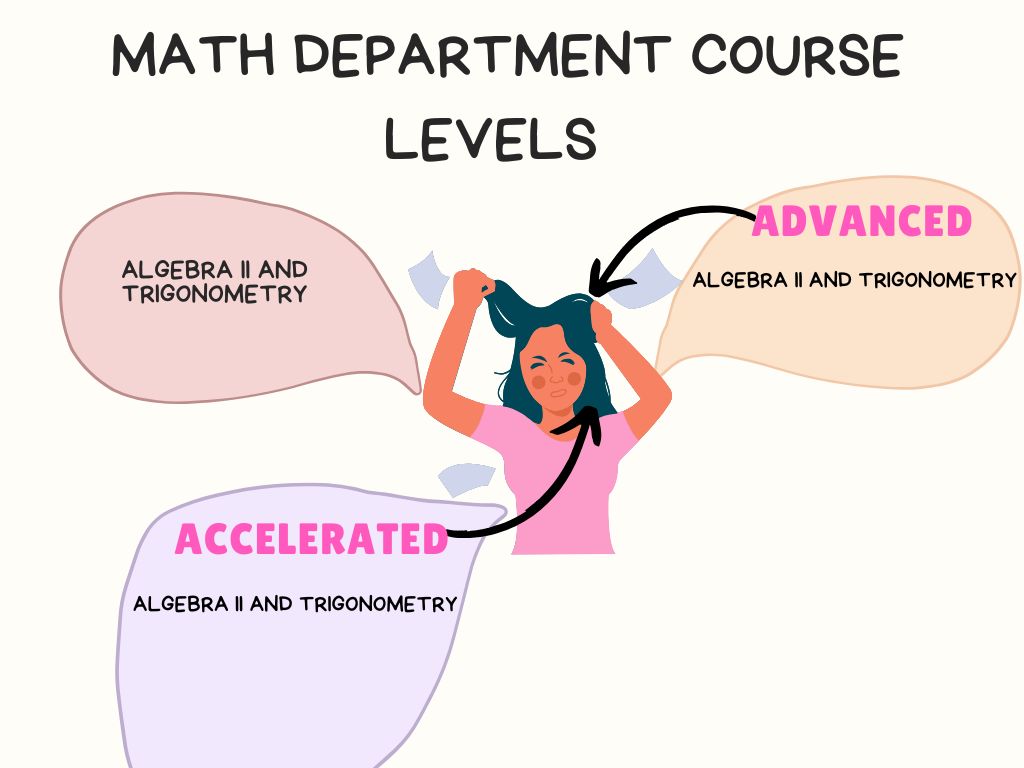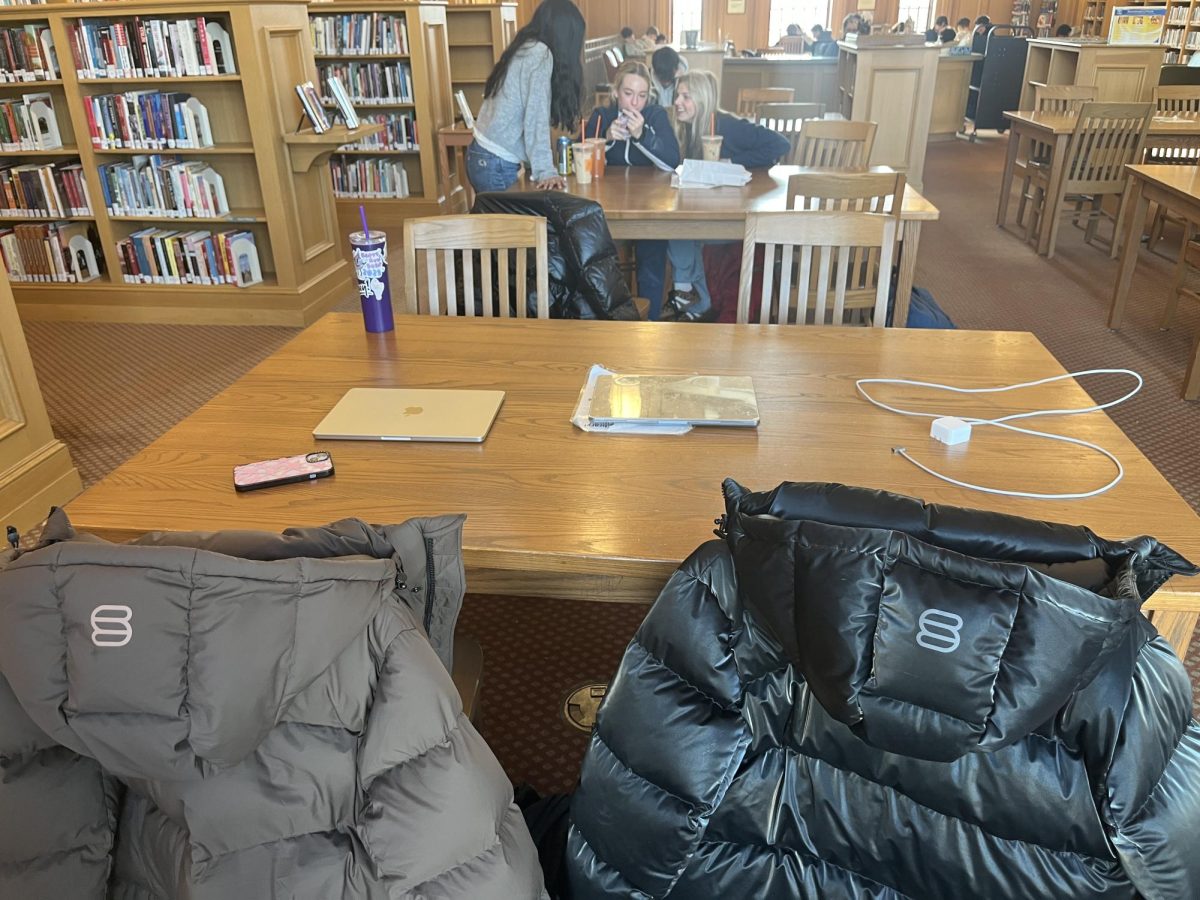Picture this: a student is applying to schools they feel are great fits for them. They also apply to an Ivy League school on a whim, expecting they won’t get in. To their surprise, they get into all of these schools. Once the Ivy League acceptance letter comes out, the student feels it is their “only” choice. How could they reject an Ivy?
This thought process reflects how, in recent years, a school’s acceptance rate has become a determining factor in many students’ college decisions. This causes students across the United States to feel pressure to apply to and choose schools solely based on selectivity, overlooking other important factors in the process.
I have been asked in the past if in the case that I was accepted to both the school I felt was best fit for me and an Ivy League, which one I would pick. When I confidently said I wouldn’t attend an Ivy League, I was looked at like I was crazy. Why would I sacrifice my college experience and happiness just to say I went to an Ivy when I know it isn’t the best school for me? Unfortunately, not all students see college this way.
Many believe selectivity indicates whether a school is “good” or “bad.” This notion is false because it disregards a student’s fit at a school and the specific resources they may need. The college process is very individual and personal, so what may be a “good” school to one may be a “bad” one to another. It’s all about finding the schools that are best fit for you, regardless of acceptance rate.
To find these schools, Hackley College Counseling has created a system where students determine the “essential criteria” they are looking for in colleges. Essential criteria include available programs, location, school size, campus culture, available research, and potential merit scholarships and financial aid packages.
To develop these essential criteria, juniors begin with an exercise where they talk about who they are, what they care about, the ways they have engaged at Hackley, and what they liked or disliked about their Hackley experience that could be essential criteria as they start to research colleges. While exploring, students are encouraged to lean into what matters most to them.
In regards to a “good” school, Director of College Counseling, Katherine Fritz, said, “There are hundreds of incredible schools…to me, it’s what’s good and best for you.”
Many overlook schools that may be better suited for their needs, so they can say they attended an exclusive school. This is a counterproductive way of looking at college because a school’s selectivity should not trump the essential criteria of a student.
“I am so deeply respectful of the energy that everyone brings into this process and I think our responsibility is to provide as much information and context…we want to make sure that you can answer that every school on your list can meet that essential criteria,” said Mrs. Fritz.
Associate Director of College Counseling Sara Kratzok said that when students determine their essential criteria, they find their best, “academic, social, and financial fit because ultimately those three things are the most important.”
Even though having a first-choice school is natural, when students weigh essential criteria over selectivity to create an intentional list of schools, they will be happy at all the schools on their lists.
One senior, acknowledging that fixating on selectivity was a problem for him, said, “I found that throughout the college process, I have for sure obsessed over certain schools because their low acceptance rates make them so desirable. I’ve had to step back and realize that there’s more to think about a school than how many people they let in.”
Another senior said how she has tried her best to avoid this “selectivity determines all” mindset, but she has noticed that it is all around her, and that, “many kids are applying to schools they don’t even love. It’s just become a competition of who can get into the most selective school.”
Selectivity is just a small piece of the puzzle that Hackley’s college counselors use thoughtfully as data to create a balanced list.
Mrs. Fritz urges students to look past a school’s acceptance rate and ask themselves questions like, “What’s behind the admit rate? What does it mean to be a student there? Is it in a location that I want to be in? Is it the community I want to be in? Does it have the program I want to be in?”
When students choose a college, they are selecting a community to be a part of not only for four years, but as alumni for life, yet selectivity does not reveal much about a community. When students select a school separate from its acceptance rate, they are more intentional about what they are looking for from their college experience and will be more excited about the overall process.
“We can’t promise an outcome, but we can promise a really thoughtful process,” said Mrs. Fritz.
Essential criteria may also change throughout the college process as students begin to test their essential criteria by visiting schools and conducting more research.
“The openness of being willing to test assumptions can be hugely helpful,” said Mrs. Fritz.
Creating thoughtful criteria to help create a college list helps students achieve the best outcome.
“Best case scenario you get into that [your favorite] school and you’re happy, but if not, you want to know that you have some other really amazing choices that you’re excited about,” said Mrs. Fritz.
The mindset that selectivity determines all makes students feel like their intelligence and ability as students are represented by the acceptance rate of the college they attend. Before they realize it, self-worth is tied to acceptance letters, and many students begin to take rejection personally.
“I feel like if I don’t get into a selective school, then in some ways I’ve failed,” said one senior.
Contrary to how students may feel, rejection is not a reflection of who a student is; it is a reflection of the selective climate in college admissions. Colleges are not saying students are failures, they are just saying that there are limited students they can take.
Mrs. Fritz said, “It doesn’t mean that you aren’t an amazing student if you don’t get in, it’s just the nature of it.”
She acknowledges that this process can be very difficult for students. Seniors are in a vulnerable time where once they click submit on their applications, they have to sit back and wait for the decisions, but she believes that “if you allow admit rate to define success, it’s going to be a harder process.”
Allowing colleges to make you feel like a failure is an unhealthy power to give them. Disappointment is part of human nature, but there are so many other opportunities out there, and letting rejection get in the way of seeing that would be unfortunate.
Rejection can feel like a personal attack at times, but it certainly is not. “Something that I’ll say sometimes, is that feelings are not facts,” said Ms. Kratzok.
Moving on from rejection includes reflecting on all you have to offer any community. Mrs. Fritz describes productively seeing rejection as “my path is not there, now I’m going to take all I’ve done to some other community.”
Similarly, Ms. Kratzok believes that “sometimes a rejection is really just redirection, but it can take some time to heal the sting of a no.”
It’s important to stay curious, be informed, and ask thoughtful questions throughout the college process to understand what you are looking for. It is equally vital to be excited about what is available and to be grateful for our ability to attend college and the amazing college counselors we have at Hackley.
“Ultimately, we hope that students realize that selectivity is just one metric by which they can judge a college, and probably not the most effective one,” said Ms. Kratzok.
It is not that students should not apply to selective schools, students just need to shift their focus away from selectivity and more on what a school can offer them specifically because that answer will be different for everyone.
Creating a balanced college list where students feel secure in their options, but also that they can reach for schools that may be more challenging if they desire to do so is the solution. If students love the schools on their list, regardless of selectivity, they’ll be less stressed and happy with their college outcomes.
“My best advice,” said Mrs. Fritz, “is to just take some deep breaths and believe in yourselves. I encourage everyone to not make their whole senior year about colleges because then you’re empowering colleges. Pick your moments and be supportive of your friends.”






